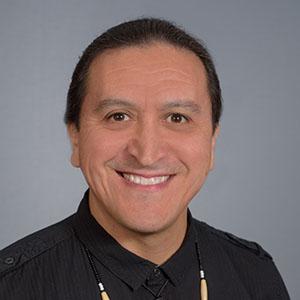The Behavioral Innovations Core (BIC) provides research support, consultation, technical assistance, and training in applied behavioral science and related technological innovation.
The BIC sits at the intersection of behavioral science and digital health, and provides support, knowledge, and skills in different contexts to further HIV prevention and care research while addressing health differences, access, ethics and policy. Advances in HIV care and prevention require substantial behavioral considerations for optimal uptake. Our efforts leverage behavioral science and digital health to advance HIV care and prevention efforts. At our core we aim to promote interdisciplinary HIV research, provide consultations and mentorship through the following actions:
- Maintain a relevant resource database
- Organize symposia to promote local and regional cross-disciplinary collaboration
- Facilitate coordinated responses to funding opportunities
- Provide consultation services related to behavioral science and digital health
- Provide technical assistance related to behavioral science and theory
The BIC has a strong focus on building partnerships with community in order to raise community voices, support the development and advance work of individuals who represent the communities disproportionately impacted by the HIV epidemic, and expand HIV workforce capabilities to make a sustainable impact on curbing the worldwide HIV epidemic.
- Quarterly Seminars
- Webinar recordings available on CFAR’s YouTube page.
- REDCap Workshop Series
- Cross-core CFAR collaborations
- Administrative Core and Office of Community Engagement Seminar will host a nationally recognized researcher working in behavioral research and/or digital health. (annual)
- Behavioral Innovations Symposium fosters interdisciplinary collaboration among researchers and community members (annual)
- Implementation Science Core Seminar co-sponsored by BIC. (twice annually)
- Early Stage Investigator (ESI) Group Assist early stage investigators in securing funding, actively publishing, and otherwise advancing in their careers. We have a successful track record, with many members focused on applying for, completing, or transitioning off a K or other post-doctoral award. Interested investigators should send a biosketch or CV to cfarBIC@uw.edu
Leadership

Joanne Stekler, MD, MPH – Core Director, Provides expertise is in domestic PrEP implementation, telePrEP, and HIV testing technologies and strategies.
Faculty

Alison Drake, PhD, MPH – Provides consultations on incorporating digital health technology for surveys or interventions, supports BIC ESI group, develops resources to promote and expedite digital data capture.

Brandon Guthrie, PhD, MPH – Develops and coordinates skills-building workshops and provides consultations and technical assistance to support investigators incorporating digital health platforms for data collection or intervention deployment.

David Katz, PhD, MPH – Provides content expertise in research accessibility for diverse populations and community partnerships. He manages incoming communication to direct BIC consults.

E. Roberto Orellana, PHD, MPH, MSW – Supports trainees and trainee workshops and co-leads work with community partners to amplify community voices.

Keshet Ronen, PhD, MPH – Provides consultations on human-centered design and evaluation of digital behavioral interventions; supports BIC community partnerships
Steering Committee
Geetanjali Chandler, MD, MPH, FACP
Susan Graham, MD, PhD, MPH
Mark Harniss, PhD
Renee Heffron, PhD, MPH
Ahoua Kone, JD, MPH
Patrick Sullivan, DVM, PhD
Andrew Trister MD, PhD
Allison Webel, PhD, FAAN
Admin Support

Morgan Aurelio, DNP, ARNP-CNM